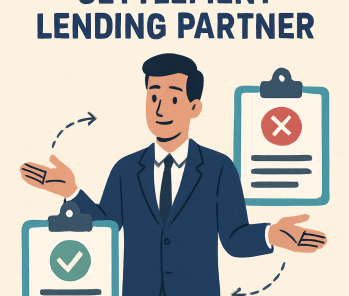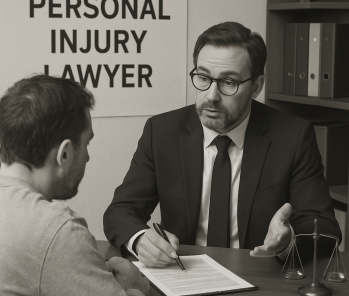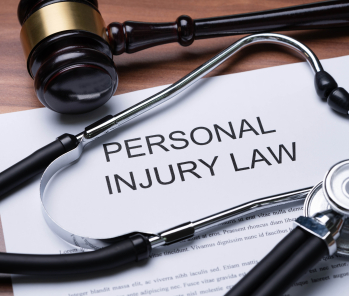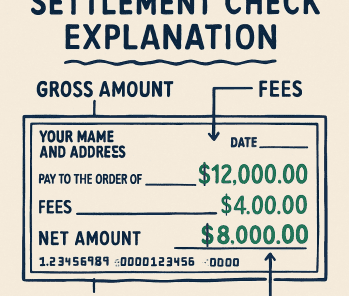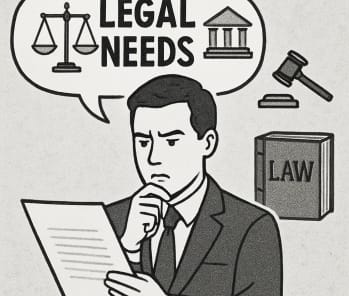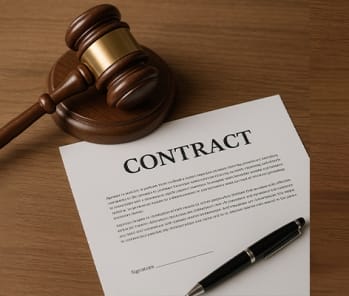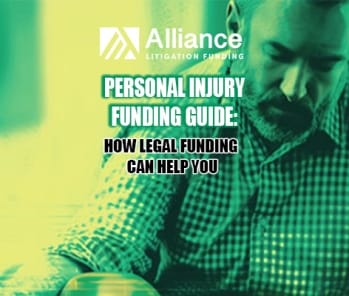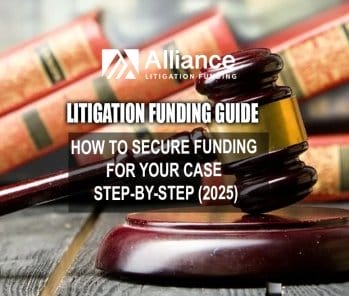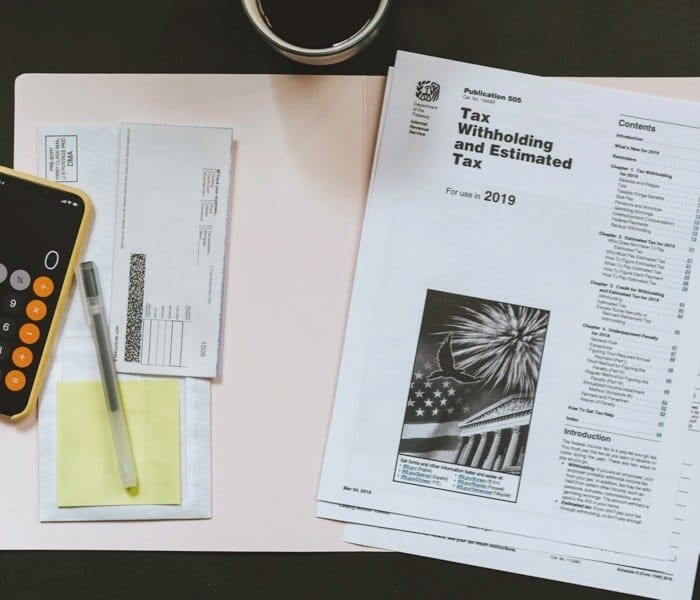Top Stories
More From Our Blogs
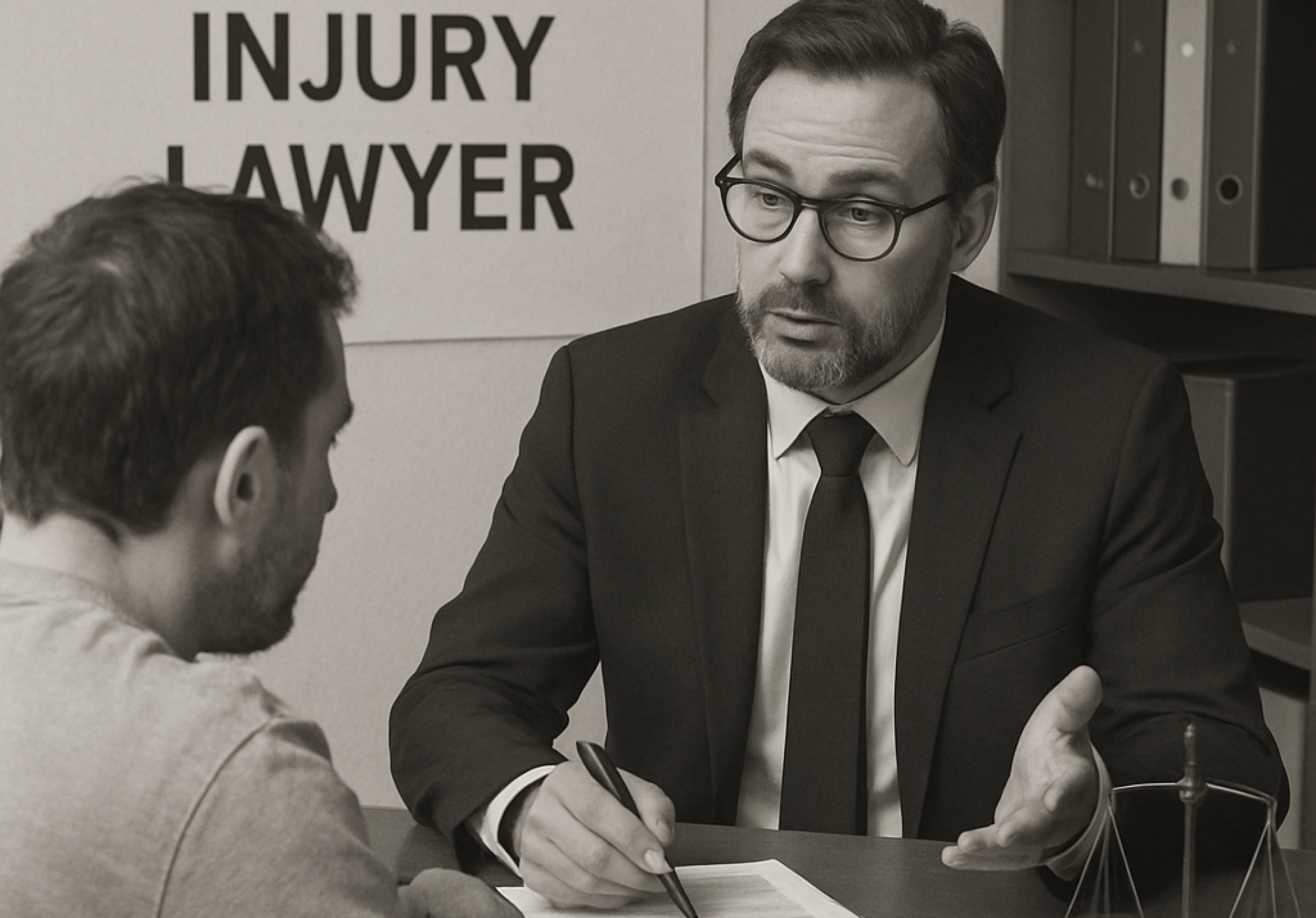
How to Choose the Right Personal Injury Lawyer: A 5-Step Guide
Choosing the Right Personal Injury Lawyer
Choosing the right personal injury lawyer is crucial for your case's success.
Navigating the legal system can be daunting, especially when dealing with injuries.
A skilled lawyer can guide you through the process, ensuring your rights are protected. They can help you understand complex legal terms and procedures.
With the right legal representation, you can focus on recovery while your lawyer handles the legalities.
This guide will help you identify key qualities to look for in a personal injury lawyer. It will also highlight the benefits of hiring an experienced advocate for your case.
By the end, you'll be equipped to make an informed decision.
Need cash while waiting for your lawsuit settlement? Alliance Litigation Funding is Here to Help
Understanding the Role of a Personal Injury Lawsuit Lawyer
A personal injury lawsuit lawyer plays a key role in navigating the legal landscape. They handle cases for individuals injured due to another's negligence. Their expertise helps clients secure compensation for medical costs, lost wages, and suffering.
These lawyers represent you in dealings with insurance companies. They negotiate settlements and, if needed, present your case in court. Their goal is to obtain the best possible outcome for you.
Key roles include:
● Assessing your case's viability.
● Gathering evidence to support your claims.
● Protecting your legal rights.
Their deep understanding of personal injury law aids in building a strong case. A well-versed lawyer can counter insurance companies' tactics. This ensures that your interests remain protected throughout the legal process.
Hiring a knowledgeable injury attorney means you have someone fighting your corner. Their skills often determine the difference between fair compensation and a legal battle lost.
Why Legal Representation Matters in Personal Injury Cases
Legal representation in personal injury cases is critical for several reasons. A lawyer ensures that you are not alone in a complex legal system. Their guidance can make the difference between success and failure.
Without a lawyer, managing the complexities of a case can be overwhelming. You risk settling for less than you deserve. Lawyers have the skills to challenge low-ball offers from insurers.
When you have an injury attorney, you benefit from:
● Expert advice and strategic planning.
● In-depth knowledge of personal injury law.
● Negotiation and litigation skills.
Beyond financial compensation, having a lawyer provides peace of mind. With a personal injury advocate, you focus on healing while they handle the legal stress. This allows you to recover without the distraction of legal worries. Your advocate stands as a shield, safeguarding your rights throughout the process.
Top Funding Company for Your Personal Injury Lawsuit
In addition to choosing the right personal injury lawyer, securing financial support can be crucial for your case. One recommended option is Alliance Litigation Funding. They specialize in providing funding for personal injury lawsuits, helping you manage expenses during the legal process.
For more information, you can visit their website at http://www.alliancelitigationfunding.com or contact them directly at 609-314-0439. Their expert team can guide you through the funding process and support your quest for justice.
Key Qualities to Look for in a Personal Injury Lawyer
Choosing the right personal injury lawyer is crucial for your case's success. You want someone with experience and a track record of wins. These qualities ensure they know how to navigate the courtroom.
A lawyer's expertise in personal injury law is paramount. They should be well-versed in statutes and regulations. This knowledge helps them build strong cases tailored to your needs.
Effective communication is a must for any lawyer. They should listen to your concerns and keep you informed. Consistent updates on case progress build trust and transparency.
Look for a lawyer with strong negotiating skills. This can make a difference in settlement talks. Their capability to negotiate can secure the compensation you deserve.
Consider the feedback and reviews from previous clients. Positive testimonials reflect a lawyer’s reliability and client satisfaction. It can be reassuring to see successful case outcomes.
Here are key qualities to prioritize:
● Specialized expertise in personal injury law
● Proven negotiation skills
● Positive client testimonials and reviews
Ultimately, select a lawyer dedicated to your case. They should show genuine interest in your well-being and justice. Your lawyer should be an advocate by your side, focusing on achieving the best results for you.
The Benefits of Hiring a Personal Injury Advocate
Hiring a personal injury advocate provides essential support during legal proceedings. They handle complex paperwork and legal jargon. This allows you to focus on recovery.
A skilled advocate can maximize your compensation. They evaluate your injury’s full impact, considering future costs. Their expertise helps secure fair compensation for you.
An advocate also provides representation in negotiations and court. They defend your rights against insurance companies and opposing parties. This alleviates some of the stress of litigation.
Moreover, they bring valuable resources to your case. Advocates have connections with medical professionals and experts. These relationships can strengthen your evidence.
Here are key benefits of hiring a personal injury advocate:
● Maximizes compensation by assessing all factors
● Provides representation in negotiations and court
● Utilizes a network of professionals for case support
By enlisting a personal injury advocate, you gain a strategic partner. They focus on protecting your interests and achieving the best possible outcome. This partnership offers peace of mind during challenging times.
How to Evaluate a Lawyer’s Experience and Track Record
Evaluating a lawyer’s experience is crucial when selecting representation. Consider their years in practice and specific focus on personal injury cases. An experienced lawyer can navigate complex legal issues more effectively.
Check the lawyer's track record for successful case outcomes. A history of winning settlements indicates their ability to advocate for clients. Look for specifics about the compensation amounts they have secured.
Client testimonials and reviews offer valuable insights. Previous clients’ experiences can highlight a lawyer’s strengths and potential weaknesses. Don’t hesitate to ask for references from past cases.
Consider the lawyer’s involvement in professional organizations. Memberships in legal associations can reflect commitment to staying updated on personal injury law.
Here are steps to evaluate a lawyer’s credentials:
● Review their years of experience in personal injury law
● Examine case outcomes for success rates
● Consult client reviews and testimonials
● Verify memberships in professional legal organizations
Assessing these factors helps ensure you choose a qualified lawyer. This evaluation can significantly impact the outcome of your injury claim.
Questions to Ask During Your Initial Consultation
The initial consultation is vital for assessing a potential lawyer. Prepare questions to gain a clear understanding of their capabilities and approach. This meeting sets the stage for your working relationship.
Ask about their experience with cases similar to yours. Inquire how they plan to manage and strategize for your specific situation. This helps determine if their methods align with your needs.
Discussing fees and potential outcomes is also important. Clarify how they handle communication and what support you can expect. Here’s a list of questions you might consider:
● How many cases like mine have you handled?
● What strategy would you recommend for my case?
● How do you structure your fees and payments?
● What is your policy on client communication?
● Can you provide references from past clients?
These questions can lead to a productive consultation, ensuring you choose the right lawyer for your case.
Understanding Fees and Payment Structures
Knowing how fees and payment structures work is key to avoiding surprises. Lawyers use various billing methods, each with implications for your case's finances. Understanding these structures helps manage expectations.
Commonly, personal injury lawyers operate on a contingency fee basis. This means they receive payment only if you win your case, aligning their success with yours. It's crucial to understand the percentage they will take and any additional costs involved.
Here’s a brief list of possible fees and arrangements you might encounter:
● Contingency Fees: Paid only if you win.
● Hourly Rates: Charged for each hour worked.
● Flat Fees: A set fee for specific services.
Discussing fees upfront ensures clarity. Ask about any possible hidden charges or additional expenses. This helps build transparency and trust between you and your lawyer.
Filing a Personal Injury Lawsuit Without a Lawyer: Risks and Realities
Filing a personal injury lawsuit without a lawyer may seem cost-effective. However, it involves significant risks and challenges. Legal representation ensures knowledgeable handling of your case's complexities.
Navigating legal procedures alone can be overwhelming. Mistakes in filing documents or understanding legal jargon may compromise your case. Lawyers provide expertise that reduces these risks.
Consider these challenges if you're contemplating going without a lawyer:
● Understanding Legal Procedures: Complex and time-consuming.
● Negotiating with Insurance Companies: Risk of undervalued settlements.
● Lacking Legal Knowledge: Higher chance of errors.

Hiring an experienced lawyer can maximize compensation. They offer strategic guidance and protect your rights, providing peace of mind through daunting legal processes.
How to Find the Right Personal Injury Lawyer for Your Case
Finding the right personal injury lawyer can significantly impact your case's success. Start by seeking recommendations from friends or family. Personal experiences often provide insight into a lawyer's effectiveness.
Online reviews and legal directories offer valuable resources. These can help identify lawyers with strong reputations. Consider lawyers with positive feedback and a record of successful cases.
Compile a shortlist of potential candidates and review their credentials. Important factors include experience and specialization in personal injury law. Always verify their track record.
When evaluating lawyers, consider these aspects:
● Experience in Personal Injury Cases
● Client Reviews and Testimonials
● Transparent Communication and Fee Structures
Making an informed choice ensures you receive competent representation, ultimately enhancing your chance of a favorable outcome.
Red Flags to Watch Out For When Choosing an Injury Attorney
When selecting an injury attorney, be vigilant about certain red flags. These issues can signal potential problems. Recognizing them can save you from difficulties later on.
An attorney who lacks responsiveness may struggle to prioritize your case. Frequent delays or unanswered calls suggest larger issues. Effective communication is crucial for case success.
Another red flag is an unclear or confusing fee structure. Transparency is essential in financial agreements. Avoid lawyers who dodge explaining their fees or offer vague terms.
Common Red Flags Include:
● Lack of Communication or Responsiveness
● Unclear or Vague Fee Arrangements
● Poor Client Reviews or Reputation
Identifying these red flags early helps in choosing a qualified injury attorney who meets your needs.
The Importance of Communication and Client Support
Effective communication is key in any legal relationship. It ensures that clients are fully informed and aware of their case progress. A lawyer must be clear, concise, and responsive.
Client support extends beyond just updates and information. A good personal injury lawyer provides reassurance during stressful times. They should prioritize the client’s emotional well-being.
Moreover, lawyers must be approachable and empathetic. Clients should feel comfortable sharing concerns or questions. A supportive lawyer-client relationship fosters trust and collaboration.
Essential Communication and Support Elements:
● Consistent and Clear Updates
● Responsive and Approachable Manner
● Empathy and Understanding for Client's Situation
Conclusion: Making an Informed Choice for Your Injury Claim
Selecting the right personal injury lawyer can significantly impact the outcome of your case. This decision requires careful consideration of various factors. From assessing experience to evaluating communication skills, each element matters.
Take the time to research and consult with multiple lawyers before choosing. Pay attention to their track record and client reviews. This will give you a clearer picture of their capabilities and approach.
Ultimately, trust your instincts and choose a lawyer who aligns with your needs. Remember, the right legal partner will advocate for your interests and help you pursue the compensation you deserve.
For more information, you can visit their website at http://www.alliancelitigationfunding.com or contact them directly at 609-314-0439. Their expert team can guide you through the funding process and support your quest for justice.

